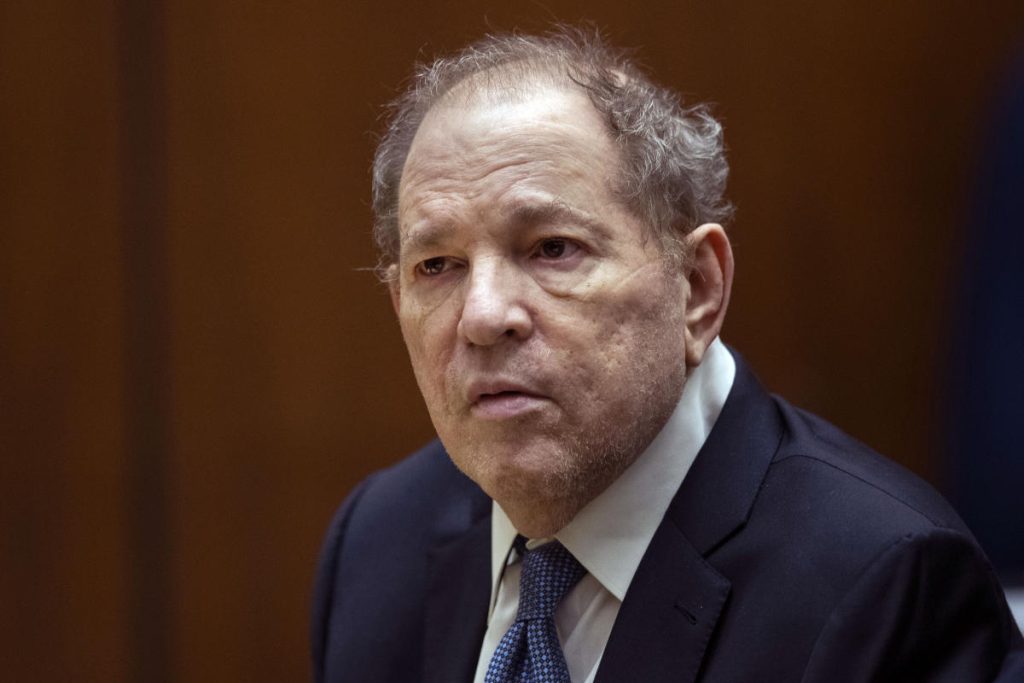New York’s highest court overturned Harvey Weinstein’s 2020 rape conviction due to prejudicial behavior by the judge during the trial. The court found that allowing women to testify about allegations not directly related to the case was an “abuse of judicial discretion.” While Weinstein will remain imprisoned due to a separate conviction in Los Angeles, the ruling reopens a painful chapter in America’s confrontation with sexual misconduct by powerful figures. The Manhattan district attorney’s office intends to retry Weinstein, potentially subjecting his accusers to the trauma of retelling their stories in court.
Weinstein has been imprisoned in New York since his conviction on charges of criminal sex acts and rape. In the Los Angeles case, Weinstein was acquitted on some charges. Following the court’s decision, the Manhattan district attorney’s office expressed its commitment to retrying the case. Meanwhile, Weinstein’s lawyer hailed the ruling as a victory for criminal defendants in New York. However, attorney Douglas H. Wigdor, who has represented Weinstein accusers, described the decision as a step back in holding individuals accountable for sexual violence. The court’s reversal has cast doubt on the legitimacy of the original conviction and the handling of the trial.
Weinstein’s conviction in New York was seen as a significant victory in the #MeToo movement, marking a milestone in holding powerful figures accountable for their actions. However, the recent ruling underscores the challenges of prosecuting such cases and ensuring fair trials. Weinstein’s lawyers argued that the trial judge’s decisions favored the prosecution, leading to an unfair trial for the defendant. The case has reignited debates around the handling of sexual assault cases and the legal standards for admitting evidence in such trials.
The allegations against Weinstein, including from prominent actresses, sparked widespread condemnation and ignited the #MeToo movement. As part of the movement, numerous women came forward to accuse Weinstein of sexual misconduct, leading to public protests and calls for accountability. Weinstein, who is serving his sentence at a facility in New York, continues to maintain his innocence. His lawyer argued that the additional testimony allowed in the trial painted an inaccurate picture of Weinstein’s character and unfairly prejudiced the jury against him.
The Court of Appeals’ decision to overturn Weinstein’s conviction follows a similar setback in the case of Bill Cosby, whose sexual assault conviction was thrown out by a Pennsylvania court. The ruling highlights the complex legal issues surrounding high-profile sexual misconduct cases and the difficulties in securing convictions in such cases. While the court’s decision has been met with mixed reactions, it underscores the need for a fair and transparent judicial process in cases involving allegations of sexual violence.
The Court of Appeals’ ruling sets the stage for a potential retrial of Weinstein’s case in New York, with the Manhattan district attorney’s office indicating its commitment to pursuing the case. The decision is likely to reignite public debate around the #MeToo movement, the justice system’s handling of sexual assault cases, and the broader issue of accountability for powerful individuals accused of misconduct. However, the outcome of the case and the impact of the court’s ruling on future prosecutions remain uncertain as the legal battle continues.


